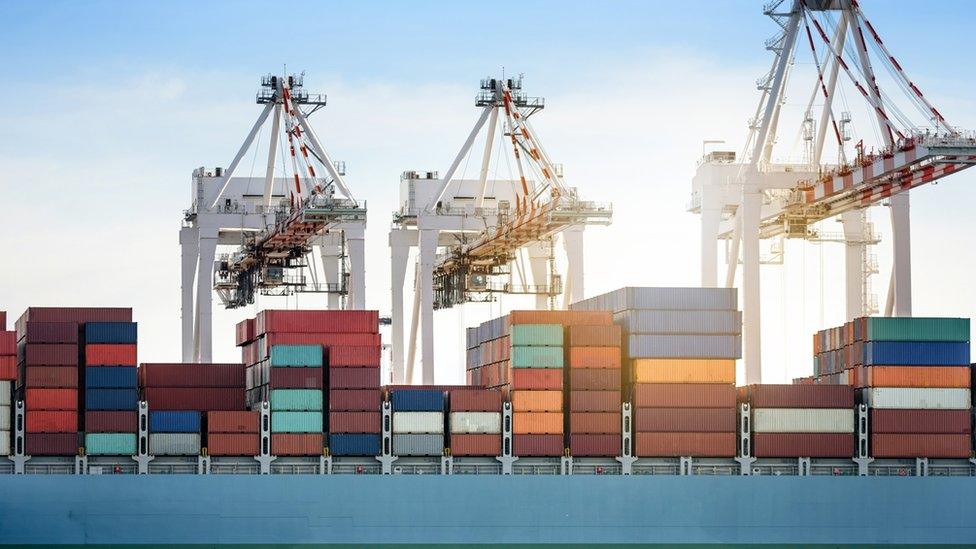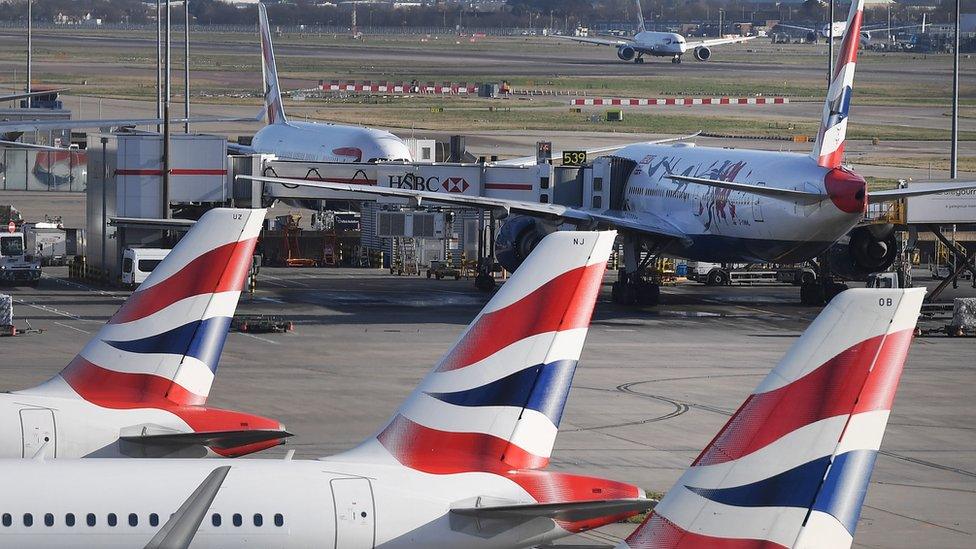Coronavirus: Trade slowdown signals shortages ahead
- Published

The coronavirus outbreak is hitting global trade
UK ports are starting to see significant gaps in their schedules as the large container vessels that usually ferry goods from China and the rest of Asia fail to arrive.
According to one industry source, the industry is seeing 20-25 so-called "blanks" over a two week period.
Based on the usual number of container vessels visiting the UK's biggest ports like Southampton and Felixstowe, that represents about 30% to 35% of the usual inbound capacity.
Other sources agreed that there had been a significant drop in arrivals, and said that arriving ships were also carrying less cargo than usual.
But some cautioned that volumes usually fell around Chinese New Year in January which made it harder to assess the direct impact of the coronavirus, now called Covid19.
Large container ships take around 6-8 weeks to sail from China to the UK, so the impact of the shutdown of factories in China will start to be felt more keenly in the coming weeks.
The Chinese authorities shut down Wuhan, the centre of the outbreak and a major manufacturing hub, in late January.
These big vessels can also make other stops, some said, raising the prospect of shortfalls of goods coming from other countries in Asia like Japan and South Korea.
Manufacturers in other countries can themselves also rely on parts that are imported from China.
A wide range of goods could be affected by the disruption to global trade, including electronics components and devices, automotive parts, textiles and clothing.
Businesses can try to find alternative suppliers of goods, albeit at a higher cost, although that may also become more challenging as the impact of coronavirus spreads.
Air freight, which accounts for about 40% of the UK's imports and exports, has also been severely disrupted after airlines like British Airways cancelled flights from and from mainland China in late January.
Passenger flights carry cargo in the bellyhold, which accounts for a large portion of overall cargo volumes.

British Airways suspended flights to mainland China in January
Heathrow, where 95% of the cargo is carried in the bellyhold of passenger aircraft, says it it accounts for 40% of the UK's non-EU and Swiss exports, for example.
Prices for air freight have spiked, with two industry bodies telling Newsnight that their members were being offered air freight at between five and 10 times the normal price, a situation that had worsened over the past month.
Companies and business groups said they were expecting to see shortages of some parts and products show up in the coming weeks, though it remained hard to predict where the pressure would be most acute.
You can watch Newsnight on BBC 2 weekdays 22:30 or on iPlayer. Subscribe to the programme on YouTube, external or follow them on Twitter, external.
- Published23 March 2020

- Published6 October 2021

- Published5 July 2023

